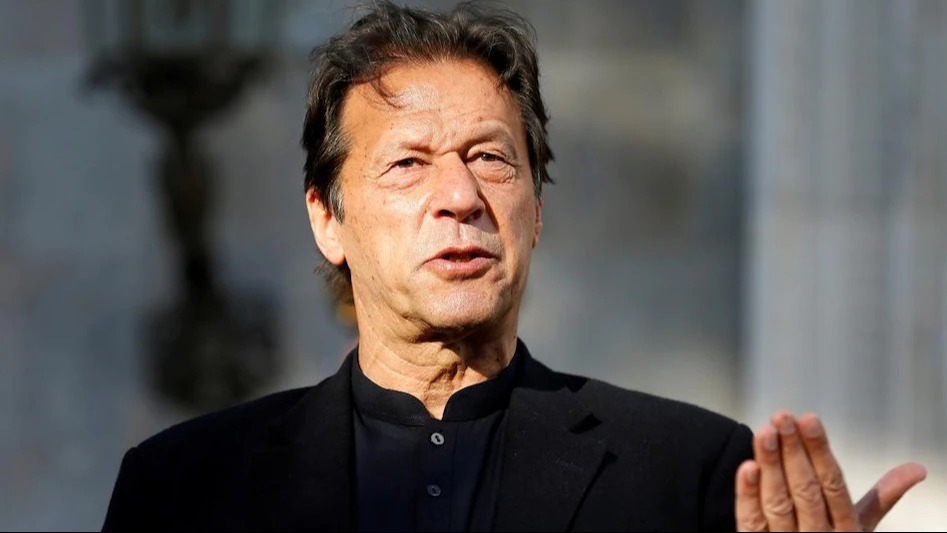Former Pakistani Prime Minister Imran Khan may be behind bars, yet his concerns for his nation's future loom large. Khan has pointed to a stirring 'Dhaka Tragedy' reminiscent scenario unfolding within Pakistan. He compares the country's current dire straits with the circumstances of 1971, issuing a stark warning that Pakistan could find itself in a severe crisis.
According to Dawn Newspaper, the Pakistan Tehreek-e-Insaf (PTI) founder chairman reminded the current government from Rawalpindi's Adiala Jail that 'nations and institutions' cannot survive without a robust and stable economy.
On the occasion of Eid, Imran's party's legal team visited him in Adiala Jail. Subsequently, PTI Information Secretary Rauf Hasan publicized Khan's message to the media.
Conveying Imran Khan's message, Barrister Raja stated, "When you do not give people their rights, you cannot claim that the economy will prosper."
Imran Khan reminded rulers of the Dhaka Crisis
Referencing the events of 1970-71 in erstwhile East Pakistan, Barrister Raja, echoing Imran's message said, 'In 1970, Army Chief Yahya Khan wished for a hung parliament, but when Sheikh Mujibur Rahman's party won a clear majority, the army orchestrated sham by-elections where Awami League's 80 seats were snatched away, as Yahya himself yearned to become the President.'
Imran added, 'I wish to recall the findings of the Hamoodur Rahman Commission, alerting us that we are about to repeat the same mistakes of our past. A 'London Plan' was concocted in 1970 and today's government has been imposed through a similar ploy.'
Imran Khan's party PTI maintains that the February 8 general elections in Pakistan saw widespread vote-rigging and results manipulation. The Pakistan Army was accused of aiding Pakistan Muslim League Nawaz (PML-N) seize power. Notably, following the elections, extensive manipulation led former PM Nawaz Sharif's brother Shahbaz Sharif to form a coalition government with PPP and other parties.
Prohibited from contesting the elections by the courts, PTI leaders participated as independents. The independent candidates, supported by PTI, won a larger share of National Assembly seats but could not form the government due to constitutional provisions, Imran's absence, and the army's leaning toward PML-N, leading PTI to believe the current government usurped their mandate.
Imran Khan has claimed multiple times that PTI's mandate was stolen and that there were attempts to "take over the party."
Ever since the tiff with the powerful military, Khan's party has faced suppression. Following his arrest last year, the May 9 violence led to crackdowns and defections among party leaders.
To note, Imran Khan, the 71-year-old ex-cricketer turned politician has been found guilty in at least four cases since his ousting after a no-confidence motion in April 2022.
But what is the 'Dhaka Crisis' that Imran Khan equates with Pakistan's current political landscape? Understanding this is crucial.
Just like Imran's allegations of vote theft in the 2023 elections, a similar poll took place in 1970. Before Bangladesh's creation, Mujibur Rahman was a popular leader in what was then East Pakistan, fighting for its autonomy.
In the 1970 elections, Rahman's Awami League triumphed overwhelmingly, claiming 167 of 169 East Pakistani seats, sufficient for a majority in the 313-seat Pakistani parliament. However, Western Pakistani leaders and the military regime deemed this intolerable.
Army Chief Yahya Khan denied Sheikh Mujib the opportunity to govern. This betrayal sparked a rebellion in East Pakistan, bringing masses to the streets. Pakistan's subsequent military intervention to crush the uprising paved the way for India to aid East Bangladesh, ultimately leading to Bangladesh's liberation. Thus, a new nation emerged on the global map.




